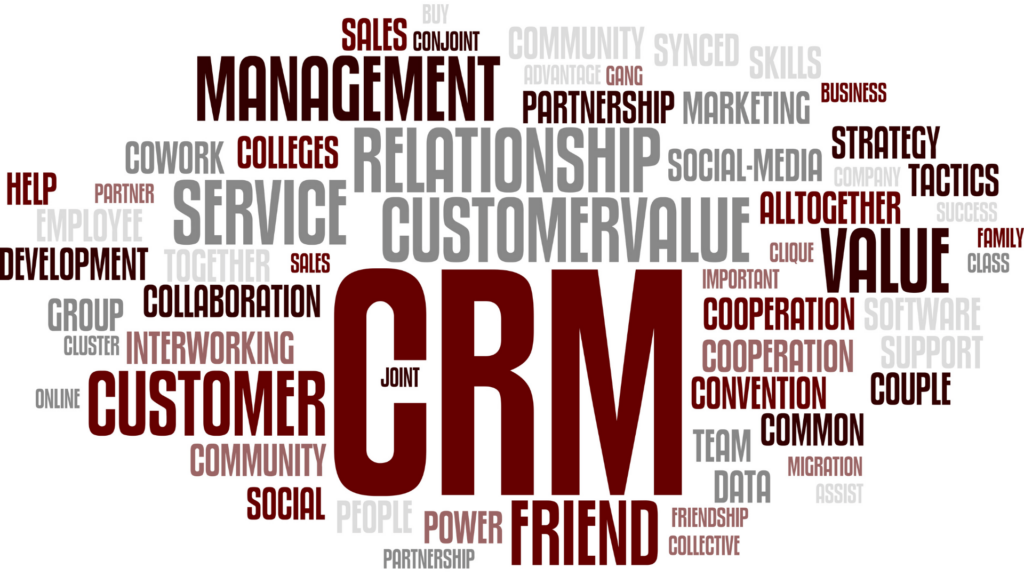Customer Relationship Management, or CRM for short, is a system that assist businesses in managing their interactions with customers and potential clients. The overall purpose of implementing a CRM is to better relationships, increase efficiency, and grow sales. Whether you are running a small business or a large corporation, a CRM system can ease up much work by centralizing all the customer data in one space. The question “What is CRM?” is one of the most frequently asked online. To address this, Mind Spark Technologies is sharing a blog that covers the basics of how CRM works.
What is CRM?
CRM is short for Customer Relationship Management. It is both a strategy as well as a tool of handling customer data effectively by an organization. It consists of names, contact information, purchase history, communication history, and preferences of a customer. CRM offers an interactive platform wherein all the mentioned details are kept on record and are utilized to revamp the services delivered, marketing campaigns, and sales management.
For instance, if you are a small business owner with several clients, then you will have to store all of such e-mail communications, telephone calls, and follow-ups by hand, which may even cause missed opportunities. The CRM system centralizes all these data, so they can easily check when they last communicated with a customer or what the preferences of the customer are.
How Does CRM Work?
A CRM system collects a vast number of customer touchpoints, like websites, social media and email communications, phone calls, and in-person interactions. The business then organizes and stores it all into one place. From this database, a business can run all of its customer interactions and record sales activities. And, of course, it also automates many tasks.
Here is a very basic outline of how CRM functions:
1. Collect data: Each time a customer interacts with the business-whether they visit the website, call on the support line, or engage on social media-the CRM system gathers this information. Modern CRM systems can integrate into many channels and tools as well, making it easier to keep track of all interactions.
2. Storage of Data: The CRM stores all sorts of data related to the customers like personal details, purchasing history, previous communications, and feedback. Centralized data storage enables all departments in a business organization to access the most updated information related to their customers.
3. Customer Segmentation:The CRM software enables a business to segment its customers according to location, buying behavior, etc. Such segmentation helps a business send targeted marketing messages to appropriate customers and develop experiences for particular kinds of customers.
4. Task Automation: Many of the CRMs are also providing automation of various tasks to eliminate repeat tasks. For example, it could be an automated sending of follow-up mails, reminders for the customer support teams or alerts from the sales representative to connect with leads.
5. Sales and Marketing Tools: CRM would essentially encompass leads management, sales pipeline tracking, and customer behavior analysis tools. The entire sales process from initial interaction with a prospect to closing deals will all be tracked by sales teams. Marketing teams can design more effective campaigns when based on customer preference and behavior through such CRM data.
6. Customer Service: A CRM software gives all-round insight to the customer journey and thus helps customer service teams solve problems more quickly. All previous interactions are put on record; thus, the customer service representative can answer queries more effectively to create a better experience for the customer.
Benefits of Using a CRM
Better Customer Relations : Detailed records help businesses personalize their approach and hence improve customer satisfaction.
– Higher Efficiency: The minimal amount of manual effort allows people to spend the majority of their time on the work that actually matters.
– Better Sales: A CRM allows tracking of leads, better sales pipeline management, and proper follow-up, and this automatically leads to increased conversions.
– Higher Collaboration: Since the data becomes centralised, it is easier for different teams such as marketing, sales, and customers to work in unison.
CRM is not just a product; it is a strategy that allows businesses to make effective relationships. It helps in different kinds of collections and forms of customer information, thus improving communication, efficiency, and selling. Whether you run a small startup or a large organization, investing in a CRM can help you establish better relationships with your customers and grow your business.

